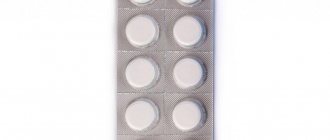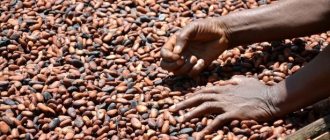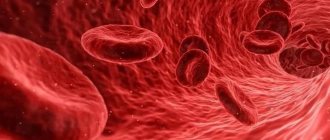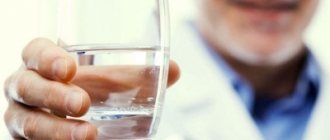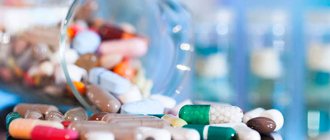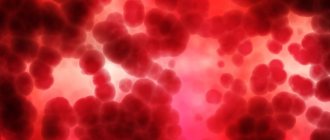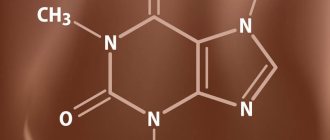It is impossible to say for sure whether coffee is good or bad. It all depends on the person’s well-being, the individual characteristics of the body, and the presence of certain diseases. Its effect on the body is ambiguous: in small doses it is tonic, in large doses it is depressing. According to doctors, drinking in reasonable quantities (several cups a day) has a positive effect, while drinking too much can be harmful.
Coffee beans contain more than 1 thousand various chemical substances, the main of which is the alkaloid caffeine. Under its influence, vasodilation occurs, as a result of which blood circulation improves and performance increases. Caffeine increases blood pressure, stimulates the nervous system and has an invigorating effect on the body as a whole. Under the influence of coffee, energy production increases and emotional stress in stressful situations decreases.
Systematic consumption of the drink reduces the risk of many diseases, including diabetes, liver, rectal, and kidney cancer.
Caffeine affects the brain centers responsible for the functioning of the respiratory system. Therefore, drinking coffee has a positive effect on the well-being of people with bronchopulmonary diseases.
The minerals and trace elements contained in natural coffee beans have a beneficial effect on the functioning of many systems of the human body. The drink also has an antioxidant effect, improves attention, memory, and sharpens sensory organs such as smell, vision, and hearing.
An undoubted advantage is the positive effect on the gastrointestinal tract. Coffee speeds up digestion and improves metabolism, which makes it useful for people who want to lose weight.
A moderate amount of caffeine stimulates the cardiovascular system, dilates blood arteries, which reduces the risk of strokes and heart attacks.
Despite the many positive properties, there are some restrictions on drinking coffee:
- It is undesirable to drink caffeinated drinks for people with gastrointestinal diseases such as colitis, gastritis, and stomach ulcers. Caffeine stimulates increased production of gastric juice, which has a harmful effect on the digestive system.
- You should not abuse caffeine-containing drinks if you have severe arrhythmia, atherosclerosis, or insomnia, as it can increase the heart rate, provoke sleep disturbances, attacks of headaches, anxiety, and nervousness.
- It is not advisable to combine an invigorating drink and smoking. Due to the simultaneous use of caffeine and nicotine, the risk of hypertension increases.
The effect of coffee on blood pressure
Does caffeine affect blood pressure? Discussions on this topic are still ongoing. Of course, coffee can have a certain effect on blood pressure, but not in the way that many people think.
To understand how coffee affects blood pressure, scientists around the world have conducted various studies for decades, during which it was found that caffeine, when introduced into the body, raises blood pressure for just a few minutes. After which it decreases and gradually returns to normal. It has been experimentally proven that giving up the drink reduces the indicator by only 1 unit, while constant drinking of coffee keeps the pressure normal or increases it by several units.
But coffee does not always affect blood pressure. A healthy person can use it completely calmly. Even drinking a few cups of coffee will not significantly affect your blood pressure. If the indicators were somewhat inflated, then they will remain at the same level or increase slightly. That is why it is necessary to drink coffee with caution if you have hypertension.
For people suffering from hypotension, this drink can provide invaluable benefits. Drinking coffee with low blood pressure helps get rid of symptoms such as headaches, dizziness, and loss of energy.
How do caffeine and blood pressure interact? After studying a group of people, it was found that coffee has completely different effects on blood pressure. During the experiment, the following patterns were revealed:
- For healthy people, caffeine increases blood pressure slightly or does not change the indicators at all.
- Drinking coffee for hypertension can significantly affect blood pressure, even to dangerous levels.
- It turns out that coffee lowers blood pressure for some people, not increases it.
- With regular consumption of the drink, the body gets used to caffeine, as a result of which blood pressure remains normal.
Composition and beneficial properties of the drink
The coffee drink contains more than a thousand different chemicals, but about 80% of them belong to the group of flavorings. It is thanks to these components that coffee has a pleasant smell and taste, which is appreciated by drink lovers around the world. And only the remaining 20% determine the characteristics of the drink, which indicate its benefits and harm to the body.
The main active ingredient is caffeine. It has a fairly intense effect on the body, promoting stimulation of the nervous system, providing an invigorating effect. In medicine, caffeine is used as a diuretic, energy drink, and headache reliever. In cosmetology, the substance is used for weight loss. However, the use of caffeine requires special caution, especially in cases of hypertension.
Firstly, coffee increases blood pressure levels, and secondly, theophylline and theobromine (substances included in the drink) can be addictive with long-term use. Without such doping, the human body will not be able to wake up and function fully if he has already become a coffee addict. Coffee also contains elements that contribute to an increase in blood pressure for several hours in a row, so people with hypertension should use it with caution.
The beneficial properties of the coffee drink are as follows:
- enriching the body with vitamins, microelements and minerals;
- removal of salts and liquids that remain in the body and interfere with the normal functioning of internal organs;
- prevention of cell degeneration into cancerous ones;
- normalization of the heart and blood vessels;
- increased vitality and improved mood;
- prevention of iron deficiency anemia.
With low blood pressure, drinking coffee has a very beneficial effect on well-being - blood vessels dilate, blood supply improves, and the body receives a certain dose of energy. Also, after taking caffeine, the production of the so-called happiness hormone increases, which is why a person after a cup of coffee feels rested, alert and full of energy.
Coffee is very useful for smokers, as it cleanses the blood and kidneys of cancer cells; the drink helps cleanse tissues of stagnant fluid, eliminate swelling and intoxication of the body. The proteins and carbohydrates present in coffee saturate the body with useful substances, and in its pure form the product is low in calories, so it is used for weight loss. Iron and potassium normalize the level of hemoglobin in the blood, improve heart function and strengthen the walls of blood vessels.
Most people are inclined to believe that coffee drinks increase blood pressure.
Use for high blood pressure
As practice shows, coffee and blood pressure are incompatible. People suffering from hypertension should either completely stop drinking the aromatic drink, or, if possible, limit the amount of caffeine entering the body.
From the table you can find out at what blood pressure levels you need to drink drinks containing caffeine with caution.
Normal pressure readings
| Categories | Systolic pressure (upper) | Diastolic pressure (lower) |
| optimal | 120 | 80 |
| normal | From 120 to 129 | From 80 to 85 |
| high | From 130 to 139 | From 85 to 89 |
Degrees of hypertension
| 1st (soft) | From 140 to 159 | From 90 to 99 |
| 2nd (moderate) | From 160 to 179 | From 100 to 109 |
| 3rd (heavy) | =>180 | =>110 |
| Isolated hypertension (systolic) | =>140 | < 90 |
People with high blood pressure can be divided into two groups. Some people can regularly drink coffee in moderate doses if they have high blood pressure. Others completely refuse the invigorating drink, or significantly reduce the number of cups they drink. It has been established that with long-term consumption, coffee increases blood pressure slightly, having an invigorating and stimulating effect.
To determine whether coffee increases blood pressure, you need to measure its readings on both arms 30 minutes before drinking caffeinated drinks. After 20-25 minutes, repeat measurements are taken. An increase of 5 to 10 units means that the body reacts negatively to caffeine, so it is advisable to exclude it from the daily diet.
What to do if a person has hypertension? Should you drink coffee if you have high blood pressure? If a person drinks it constantly, without visible fluctuations in blood pressure, then several cups a day not only will not harm, but will also be beneficial. The only contraindication is if the patient has problems sleeping, as there is an opinion that insomnia provokes the development of hypertension.
A person suffering from hypertension must decide for himself whether to drink coffee or not. If, after drinking the drink, his blood pressure not only increases, but his health also worsens in the form of rapid heartbeat, heartburn, and headache, then we can talk about the body’s sensitivity to caffeine.
Doctors clearly state that it is very undesirable for people with grades 2 and 3 hypertension to drink coffee in any form. In other cases, you can drink it in moderation, regularly and with pleasure.
Recommendations for hypotensive patients
People with low blood pressure should not take tea in the “standard form”. It is recommended to prepare strong teas. The maximum daily dose can be increased to 4-5 glasses per day (200 ml each).
Sweet tea (2 teaspoons of sugar per 1 cup of drink) is often used as a first aid method for acute hypotension due to an overdose of antihypertensive drugs or severe intoxication of the body.
There are practically no restrictions on coffee intake, since it raises blood pressure the best. It is only necessary to observe the total volume of drink per day - up to 3-4 cups.
You should also not take coffee if you have pathologies such as:
- arrhythmias of any origin;
- coronary heart disease with unstable coronary hemodynamics or Prinzmetal's angina;
- operations performed on vessels supplying the myocardium (coronary artery bypass grafting, stenting, etc.);
- disorders of the central nervous system caused by organic causes that involve the brain stem.
Expert commentary
Kardash Anton Borisovich
Therapist, cardiologist. Doctor of the highest category.
In any case, in case of abnormalities in blood pressure, the question of the advisability of drinking coffee or tea drinks is decided individually in consultation with the attending physician. Only a specialist can adequately assess the clinical situation and make a verdict.
How to reduce the effect of coffee on blood pressure
You can reduce the negative impact on blood pressure by properly preparing this wonderful drink. Grinding of grains should be carried out immediately before use. You can reduce the caffeine content in the drink in the following way: pour boiling water over the ground coffee beans and let them boil.
A decaf drink is also not a panacea, since there is no technology yet that can completely remove it from beans. Most people, due to lack of time, prefer to drink instant coffee, but it contains much more caffeine than the natural drink.
Many hypertensive patients try to reduce the negative effects of coffee by replacing it with tea. Let's try to figure out what increases blood pressure: tea or coffee? These drinks have the same caffeine content, but tea has a milder effect on many people. This is explained by the fact that high-quality tea leaves contain large amounts of adeine and tannin, which slightly neutralize the negative effects of caffeine. Tea, rather, normalizes blood pressure: in case of hypertension it lowers it, in case of hypotension it increases it. It also has an invigorating effect on the body, so you should not use it at night. What to choose: tea or coffee is up to you.
A cup of aromatic coffee will give you a boost of energy, lift your mood and improve your overall well-being. You just need to follow certain recommendations:
- Try not to drink more than three cups per day.
- Caffeine-containing drinks can only be safely drunk by people with normal or low blood pressure. Hypertensive patients should stop using it.
- It is better to drink coffee in the morning and afternoon to recharge your energy, concentrate, and improve performance.
- It is better not to drink invigorating drinks in the evening and before bed, as caffeine can cause insomnia.
- You should not stimulate a tired and weakened body with increased doses of caffeine.
It is impossible to definitively answer the question “does coffee increase blood pressure?” One can only say that this drink has both beneficial and harmful properties. You should pay attention to the signals of your body, and then coffee will only bring pleasure.
How much caffeine is in a cup of coffee
It must be clarified that this is not entirely correct. The effect of drinking coffee depends on many factors - its grind, variety, brewing method, amount of ingestion. We are talking about natural coffee if it is used in the form of beans or instant, and not about surrogates and “three-in-one” drinks. The effect of coffee on blood pressure depends on the amount of the main substance (caffeine) contained in one cup of the finished drink.
If you take instant coffee, then the entire portion of caffeine ends up in the cup, but the ground beans, most stimulating substances, are left in the Turk for brewing.
On average, one cup of drink contains 40–60 mg of caffeine; a serving of instant coffee contains 60–100 mg of the substance. To clearly explain the caffeine content in ground and instant coffee, you should take a Citramon tablet as a comparison. It contains half the caffeine content of a drink made from ground beans. But in instant coffee there is three times more than in one tablet.
Effects of caffeine on the body
Drinking one cup of coffee leads to the dilation of almost all blood vessels. Only the capillaries of the brain and abdominal cavity narrow. Blood flow accelerates through dilated vessels, the nervous system and brain are saturated with oxygen. Since caffeine dampens the signal for the need for rest, a person remains more productive.
Only natural products have high excitability. This is wrong. Caffeine is also contained in a sublimated version. There is less of it, but it is also capable of raising blood pressure.
Most often, the invigorating drink is consumed in the morning. This can be a ground version or freeze-dried. You can add milk to it, which will slightly reduce the tonic effect. Once in the body, caffeine begins to act as an energy drink. From the gastrointestinal tract it is absorbed into the blood, after which, with the help of the blood flow, it excites the nervous system, causing vasospasm. If you drink the standard amount at a time, there will be no harm. The drink will help you become more alert and eliminate drowsiness. It is for these qualities that he is valued.
Young mothers often ask questions about whether their babies should drink coffee. It is believed to be harmful to children. Due to the fact that it can sharply increase blood pressure, doctors prohibit giving it at a young age. In children, the vascular system has not fully formed, so sudden jumps can damage it.
Does coffee increase or decrease blood pressure: results of scientific research
More than 19,000 studies have already been conducted on the effects of caffeine on the human cardiovascular system. It has even been established how much and when coffee increases blood pressure.
- With irregular consumption of an invigorating drink, after drinking a cup it increases by 3–8 mmHg. Art. regardless of the initial level, and lasts for 1–3 hours.
- In avid coffee drinkers, subject to moderate consumption, blood pressure does not change.
- In hypertensive patients with risk factors for cardiovascular complications, blood pressure can jump significantly.
But there are rare exceptions when blood pressure decreases somewhat after coffee. The reasons for this paradox have not yet been established, although some scientists rely on the diuretic effect. But in order to lower blood pressure using a diuretic effect, you need to drink the drink in large quantities. And this already threatens tachycardia and arrhythmia, irritability, insomnia, etc.
But moderate consumption of caffeine has a positive effect on some systems and organs. Studies by scientists from different countries have shown that 2-3 cups of drink per day: reduce the incidence of gastrointestinal tract diseases, stimulate the production of oxytocin, which accelerates metabolism, increase muscle strength and suppress appetite.
Based on the reviews of doctors participating in Malysheva’s television programs, the constituent components of coffee beans can reduce the level of glucose in the blood plasma and reduce tissue insulin resistance, which becomes the prevention of type II diabetes mellitus.
It has been scientifically proven that coffee can prevent the development of parkinsonism and Alzheimer's disease, uterine cancer in women and bladder cancer in men.
